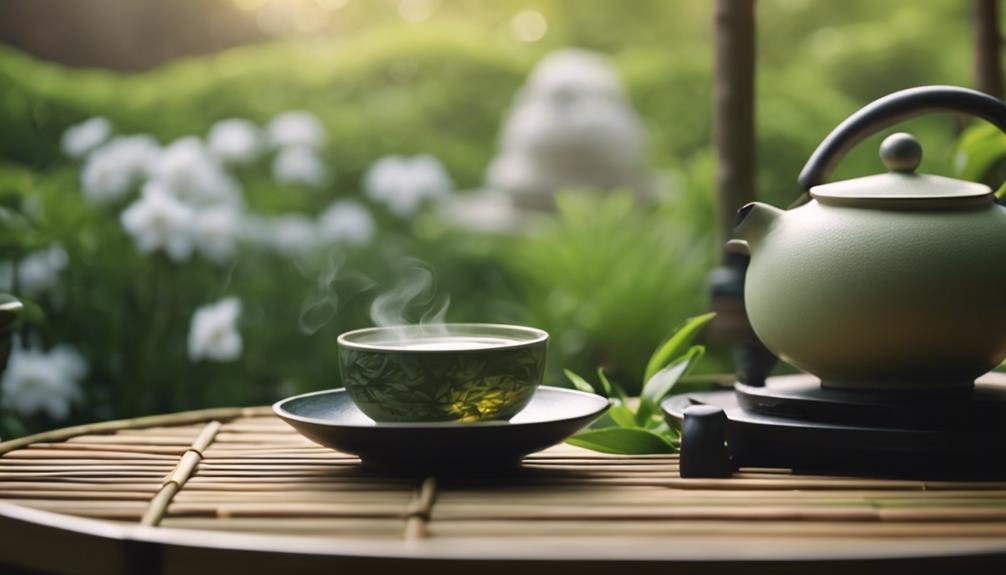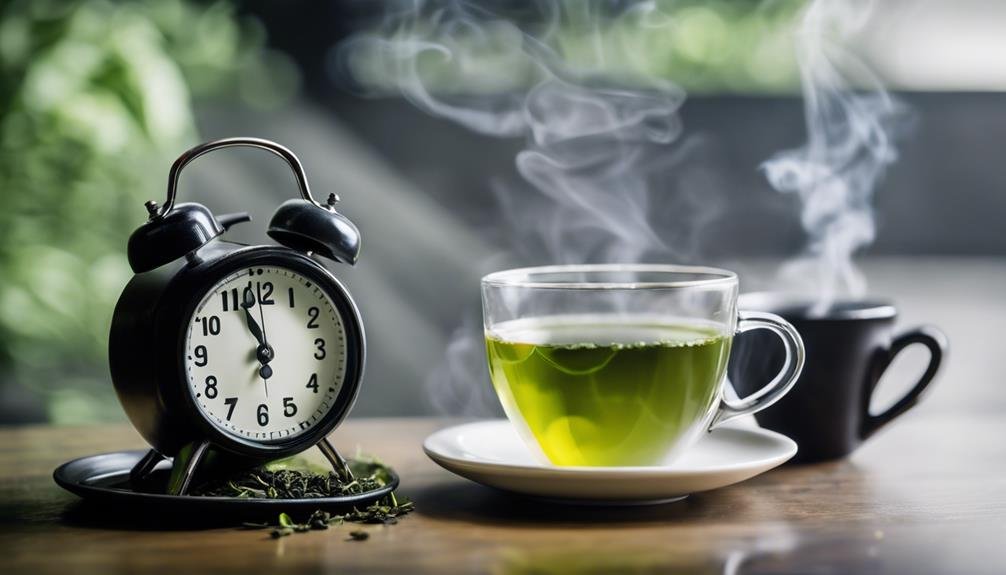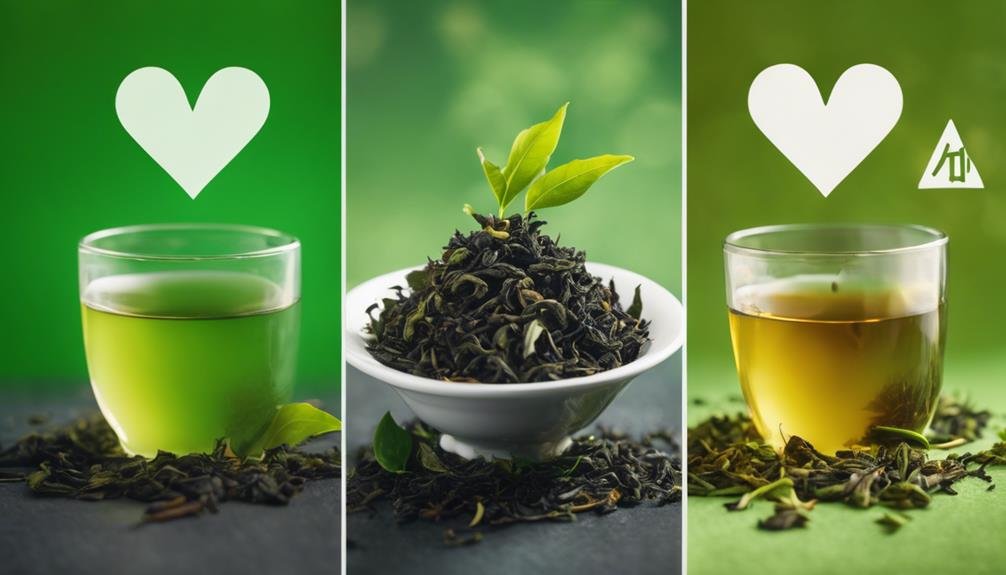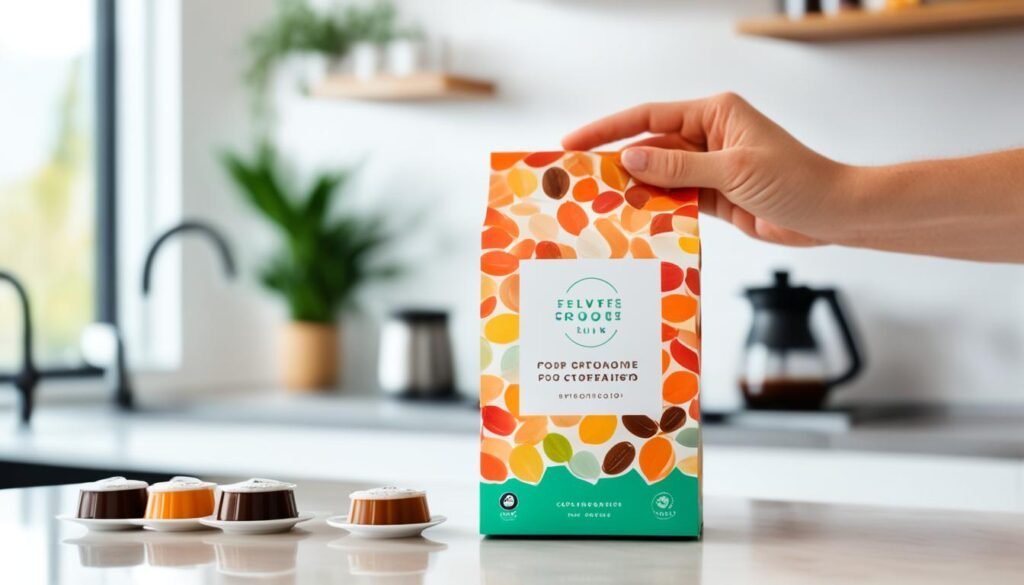Green tea is known for its light color and fresh, grassy notes, containing approximately 28 mg of caffeine in an 8-ounce cup. It is packed with antioxidants that can help in preventing cancers and heart disease, although excessive consumption may harm the liver.
On the other hand, black tea boasts a darker, full-bodied flavor with around 48 mg of caffeine per serving. It is beneficial for lowering blood sugar levels, promoting digestive health, and providing an energy boost.
Both green and black teas should be enjoyed in moderation to avoid potential side effects from caffeine. Understanding the distinct flavors, health advantages, and caffeine content of each type can assist you in making a well-informed choice.
Green Tea Overview

Green tea is a widely enjoyed beverage known for its light color, which is preserved through careful processing to prevent oxidation. Sourced from the first leaves of the Camellia sinensis plant, green tea offers a diverse range of flavors, from fresh hay to grassy notes.
The taste can vary from astringent to sweet, depending on how it's brewed; using slightly cooled water brings out its sweetness, while boiling water can lead to bitterness. With around 28 mg of caffeine per 8-ounce cup, green tea provides a gentler alternative to coffee.
In addition to its pleasant taste, green tea is linked to various health benefits, including potential mood enhancement and protective effects against certain cancers and heart disease. It's important to note that excessive consumption may carry risks like liver damage.
Black Tea Overview
Black tea offers a bold and malty flavor along with higher caffeine levels compared to green tea. Its deep color and robust taste come from full oxidation during processing. This type of tea is known for its strong tannins and can be a satisfying coffee alternative, especially when enjoyed with milk or sugar.
Black tea also provides health benefits like antioxidants that promote oral health, regulate blood sugar, and boost immune function. However, it's important to be cautious of potential side effects such as anxiety, insomnia, or headaches.
Despite these considerations, black tea remains a popular choice for those looking for a more intense tea experience.
Caffeine Content

When comparing the caffeine levels in green and black teas, it's worth noting that black tea generally contains more caffeine per serving. In an 8-ounce cup, green tea typically has around 28 mg of caffeine, while black tea packs in about 48 mg. This difference can impact your choice based on various factors:
- Energy Boost: If you need a stronger energy kick, black tea's higher caffeine content might be more suitable.
- Sensitivity: For those sensitive to caffeine, opting for green tea with lower levels might be preferable.
- Daily Intake: Green tea allows for more frequent consumption without worrying about consuming too much caffeine.
Understanding these distinctions can help you choose the tea that aligns best with your energy needs and preferences. Make a mindful selection to support your health goals and daily routines.
Taste Comparison
Green tea and black tea offer distinct flavors that cater to different preferences, providing unique tasting experiences for tea lovers.
Green tea is renowned for its light and fresh notes, often likened to grassy or hay-like undertones. The taste can vary from sweet to astringent, depending on how it's brewed and the water temperature used.
In contrast, black tea boasts a rich, malty flavor with robust tannin notes that deliver a bold taste similar to coffee. Green tea typically ranges in color from green to yellow, while black tea tends to have a darker hue.
Understanding these flavor profiles empowers tea drinkers to select based on their personal preferences, enriching their enjoyment of the tea-drinking ritual.
Health Benefits and Risks

When considering the health benefits and risks of green and black teas, it becomes clear that both options offer unique advantages for consumers.
Green tea is known for its rich antioxidants which can potentially help in preventing certain cancers and heart disease. Additionally, it contains theophylline, a natural compound that can uplift mood, aids in nutrient absorption, and promotes stress relief.
On the other hand, black tea is also packed with antioxidants that contribute to improved oral health and immune function. It is beneficial for lowering blood sugar levels, supporting digestive health, reducing stress, and possessing anti-inflammatory properties.
Despite these benefits, it is crucial to be aware of the potential risks associated with both teas.
Green tea, due to its caffeine content, may lead to side effects like nausea and insomnia, and excessive consumption could potentially harm the liver.
On the other hand, black tea, with its higher caffeine levels, may cause issues such as anxiety, headaches, and high blood pressure. As with any dietary choice, moderation and awareness of individual tolerance levels are key in enjoying the benefits of green and black teas while minimizing potential risks.
Conclusion
In conclusion, the choice between green and black tea comes down to personal health goals and flavor preferences.
Green tea, known for its delicate grassy taste and potential health benefits, provides a calming and subtle experience.
On the other hand, black tea, with its bold and rich flavor profile along with higher caffeine levels, appeals to those seeking a stronger brew.
Both types of tea offer unique advantages, but it's essential to consider potential risks like caffeine sensitivity.
Making an informed decision involves balancing taste preferences with health considerations for a satisfying tea experience.












